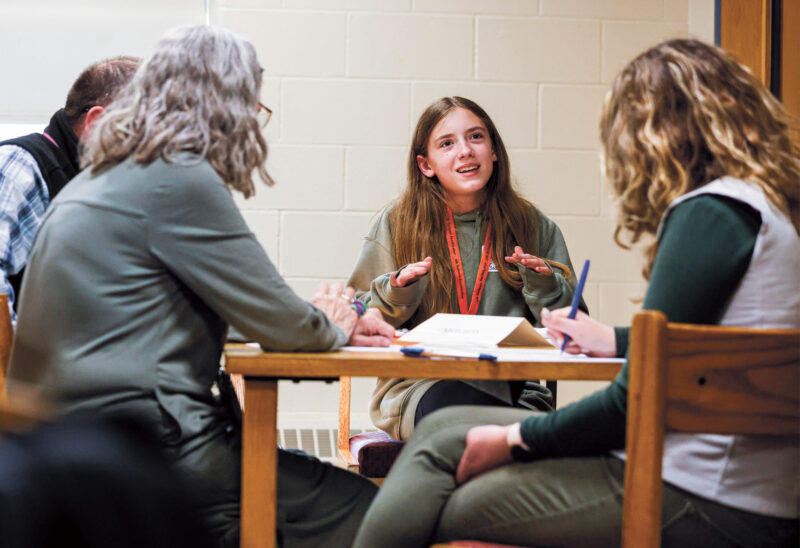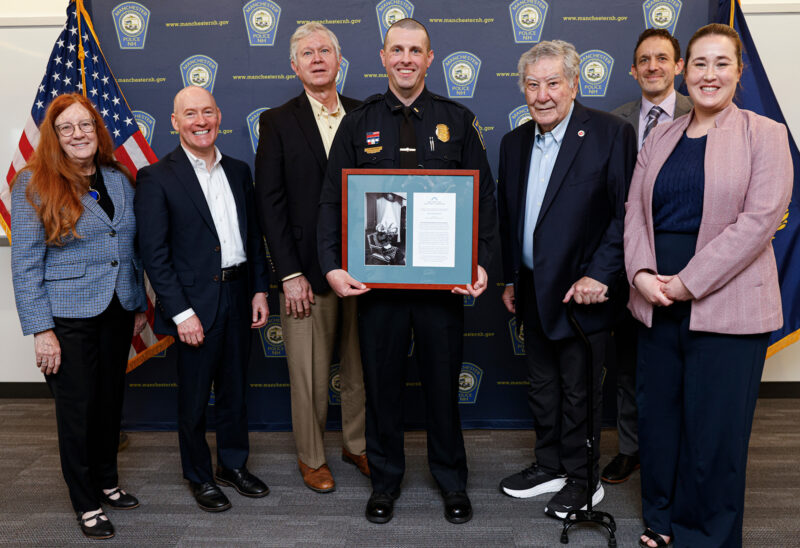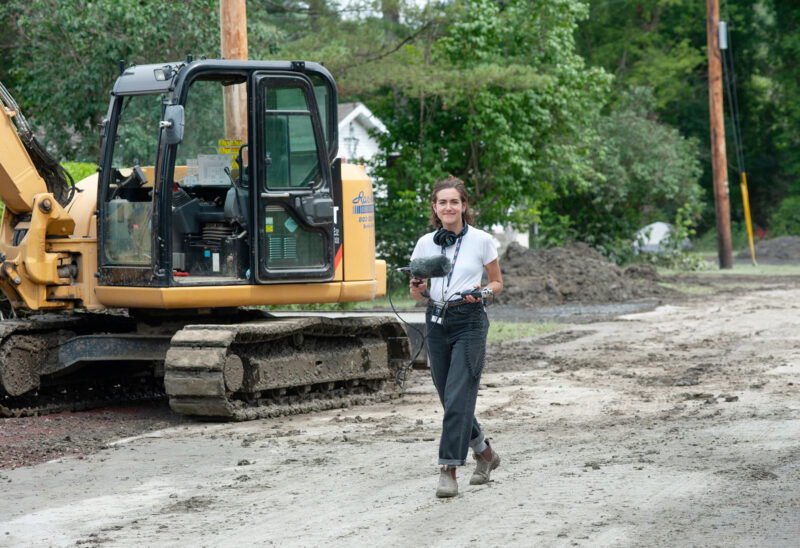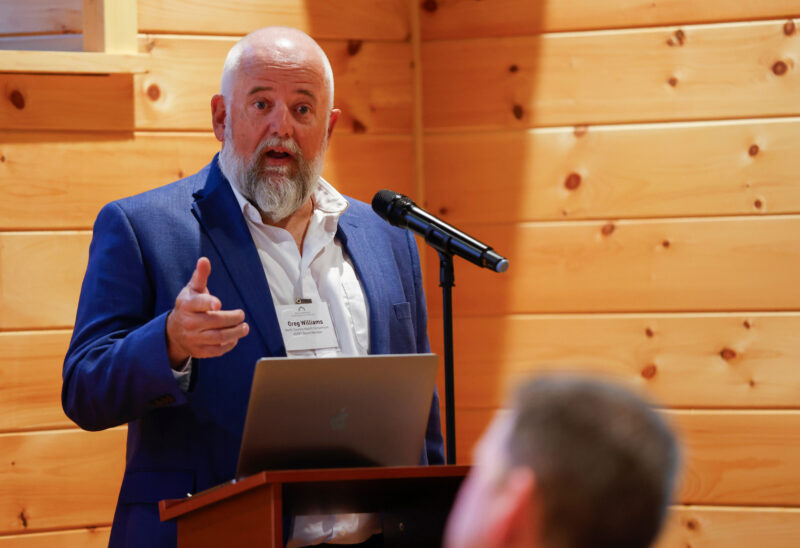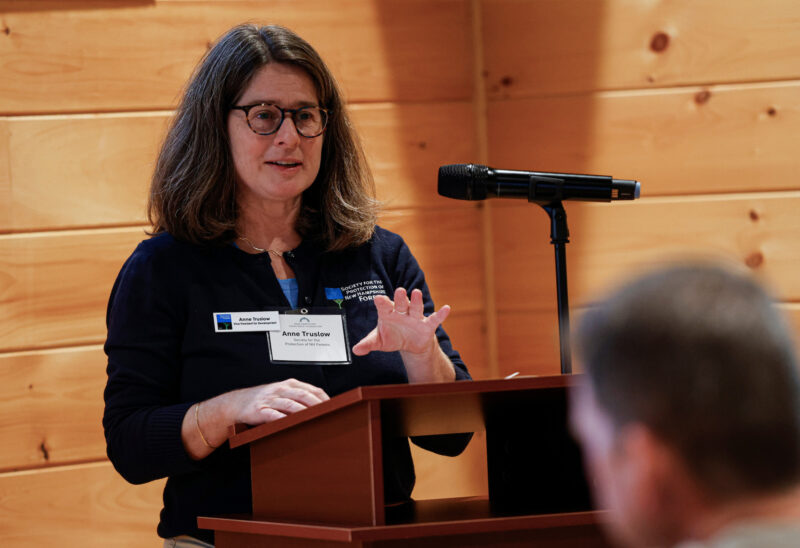Mike Alberici was 15 years old on that horrible day in January of 1986.
He was in sitting in his Algebra II class, in the second row near the windows. His teacher came in late. She was weeping.
The Space Shuttle Challenger had just exploded, 73 seconds after takeoff. Concord High School teacher Christa McAuliffe had been on board, America’s celebrated “Teacher in Space.” All seven astronauts aboard had perished, as thousands of horrified onlookers watched from Cape Canaveral and millions more watched live across the country and around the world.
**
Grief washed over New Hampshire like January sleet. McAuliffe had been a cherished member of her community, a mom and a wife and a teacher and a friend. New Hampshire was justifiably proud of her, and had celebrated her with genuine affection. Now the state mourned.
Thousands of people turned out for a memorial service in front of the State House on a freezing winter night.
Just ten days after the disaster, a fitting and enduring way for New Hampshire to honor her legacy was announced.
Gov. John Sununu took the microphone in the Executive Council chambers on the afternoon of February 7, 1986:
“Choking back tears,” the Concord Monitor reported, “Gov. Sununu announced a sabbatical program that will make McAuliffe a model for other New Hampshire teachers eager to explore their educational frontiers…‘This McAuliffe Sabbatical Program assures that New Hampshire will never forget you, Christa McAuliffe,’ he said.”
The Christa McAuliffe Sabbatical Program is now 30 years old. Each year, one New Hampshire teacher receives the honor that commemorates and carries on McAuliffe’s legacy. Teachers get a year off, with pay and a budget, to pursue a project of their professional dreams. Teachers have re-imagined Shakespeare for kids with learning difficulties, brought flight simulator software to classrooms, created a New Hampshire history textbook, created a scientific instrument-sharing system for New Hampshire schools. And much, much more.
“As much as we mourned the loss of Christa,” Sununu recalled recently, the sabbatical to honor her legacy was a way “to move forward in an upbeat way … teachers in public schools could have a chance to apply to have a well-funded sabbatical so they, too, could bring enhanced perspectives and enthusiasms and a set of recharged personal batteries, if you will, to the classroom.”
McAuliffe had been on sabbatical in the Space Program when she died.
Sununu got the Legislature to designate some funding to get the sabbatical launched, solicited private and corporate donations and held a series of charity ski tournaments to build an endowment. The committee that selected teachers was comprised of McAuliffe’s mother, Grace Corrigan, plus Sununu and a team of dignitaries – the president of the state senate, speaker of the house, chair of the state board of education and presidents of the New Hampshire chapter of the National Educators Association and the New Hampshire Federation of Teachers.
The trustees asked the Charitable Foundation to take on stewardship of the sabbatical fund in 1990. The same committee – or their representatives or successors – still advises it, selecting teachers to receive the awards. Foundation staff manage the application and interview process distribute the sabbatical funding.
“It really is an honor,” said Foundation president Richard Ober. “Christa and her legacy mean so much to the people of New Hampshire. And the teachers we meet through this award are doing absolutely heroic work for New Hampshire’s kids.”
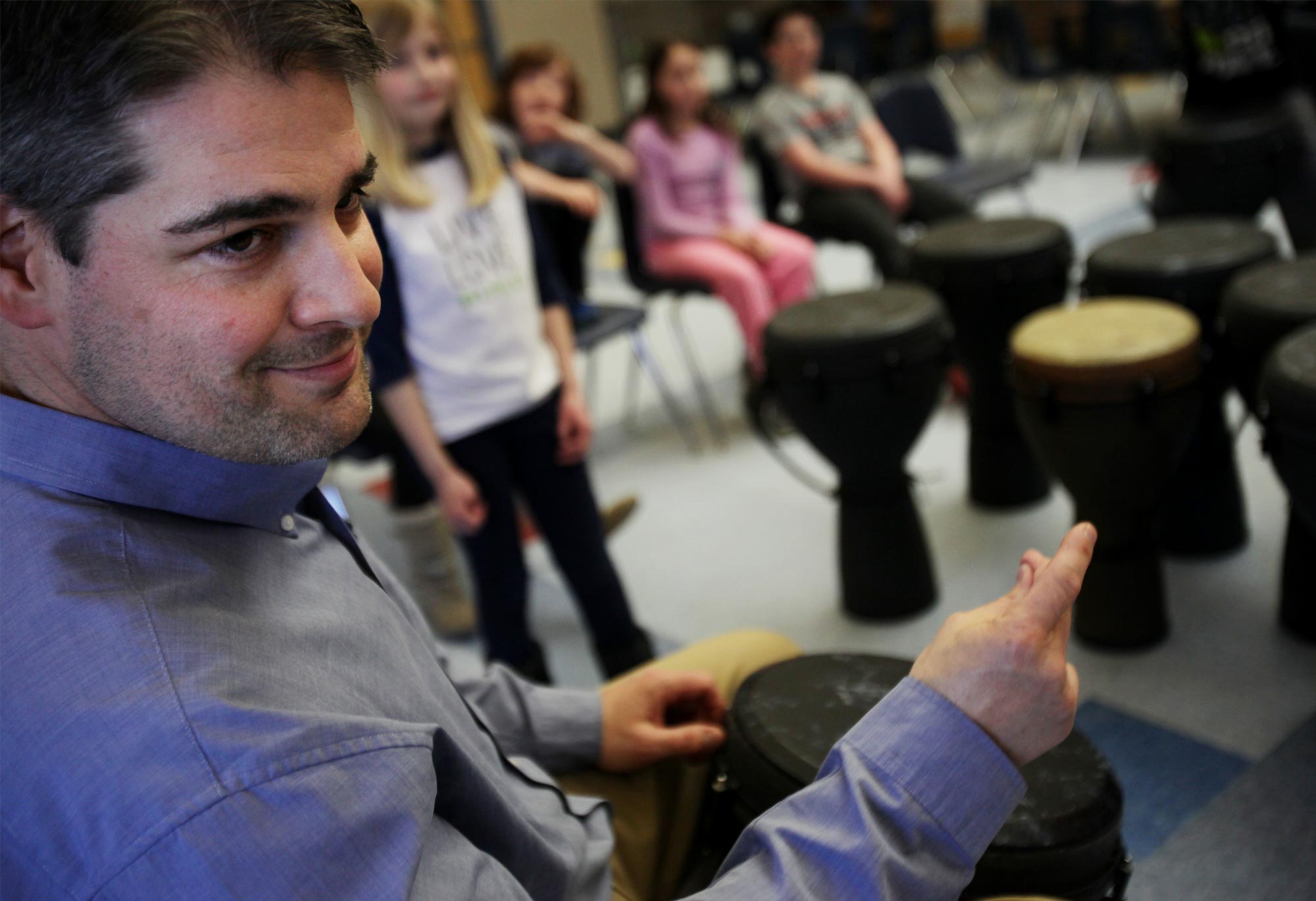
She’s the reason why I’m here.- Mike Alberici, Hopkinton music teacher and 2014 recipient of the Christa McAuliffe SabbaticalTweet This
Mike Alberici, that 15-year-old algebra student, became a New Hampshire music teacher.
He was awarded the Christa McAuliffe Sabbatical in 2014. His project, “Sound in Focus,” brought the science of sound and the art of listening into New Hampshire classrooms. With the McAuliffe sabbatical budget, he put together a traveling road show that that he called “Part Mythbusters, part Blue Man Group and part Bill Nye the Science Guy.”
When he came to the Foundation to apply for the sabbatical, he brought some experiments along.
“I blasted non-Newtonian fluid all over the carpet and all over myself and made a huge, flipping mess,” he said. “They called me like a half-hour later.” He had gotten the award.
Alberici spent a week at a time in 20 different schools around the state. He built a website, conducted workshops for teachers and did presentations for thousands of kids.
He called it “the most incredible year of my life.” He still brings an abridged version of the presentations to schools, and incorporates it into his own classes.
“As educators, we constantly think of these big, crazy, nutty things that will inspire (students) and blow their minds,” Alberici said. But ideas get pinched by budgets and schedules and competing demands.
The sabbatical lets teachers dream big, take risks and make a meaningful difference. Exactly like McAuliffe did.
The McAuliffe year gave Alberici the opportunity to bring his grand idea to life. “This,” he said, “has been my life’s work.”
Alberici made his very first Sound in Focus presentation at the Christa McAuliffe School in Concord.
**
Barbara Hopkins, a chemistry teacher who was awarded the McAuliffe sabbatical in 1998, stops to do the math.
Hopkins had swapped a career as a working scientist to teach, and was passionate about bringing “real science” into schools. With her sabbatical budget, she bought an ultraviolet-visible light spectrophotometer (a machine that analyzes the interaction of materials with light). Then she wrote a grant for five more. She would load them all into her red SUV and go. She taught kids in the remotest corners of the state to assemble and use equipment so high-tech and valuable it would take your breath away. And then she sat and drank chocolate milk with them.
Hopkins did presentations in high schools across the state, and five weeklong teacher workshops over summers to train teachers to use the equipment. She added biotech, and more scientific tools, and a van to transport it all. She did workshops and demonstrations at science and technology conferences and state teacher conferences. She estimates having trained 132 teachers. If each taught just 75 students per year for three more years, then her project alone reached almost 30,000 students.
While it’s impossible to say how many students have been touched by all McAuliffe Sabbatical projects over three decades, it’s safe to estimate that the number runs close to a million.
“God bless Christa,” Hopkins said. “Look at her legacy. Look at how many people she has touched.”
Hopkins’ collection became a scientific instrumentation lending library – giving students and teachers access to equipment they might have never otherwise known existed.
“It’s one of the things I am most proud of in my life, when I look back,” she said.
For Hopkins, the sabbatical represented a professional transformation.
She went on to found and direct the UNH IMPACT Center (now the UNH Leitzel Center) and transformed her McAuliffe project into UNH’s “Advancing Science” Program. Those programs received grants from the National Science Foundation and the National Institutes of Health to advance science teaching in partnership with high school science teachers, research scientists and graduate students.
Awards for her work have poured in – among them the National Science Foundation’s Presidential Award for Science Teaching, the first New Hampshire Distinguished Educator Award, and the National Foundation for the Improvement of Education Award for improving understanding in science.
Hopkins is now Assistant Superintendent of Schools at SAU 21 in Hampton. Recently, two teachers in her district pulled her aside, excitedly, to show her a piece of equipment they were using to teach kids about chlorophyll by using light. It was equipment that she had introduced during her sabbatical.
“Knowing that equipment is still being used by students and teachers,” she said, “was better than any award.”
**
Jim Krolikowski, a Manchester Memorial social studies teacher, got the phone call when he got home from school one day in the spring of 1986. He had been awarded the very first Christa McAuliffe sabbatical.
He met his wife in the driveway.
“I won!” he called, as Susan got out of her car.
She ran and jumped into his arms. It was like winning the lottery.
The award was front-page news.
Krolikowski had also applied to NASA’s Teacher In Space Program.
He was intent, now, on creating a teachers’ manual chock full of experiential learning lessons in New Hampshire history.
Sununu arranged for a Wang computer roughly the size of a loveseat to be installed in his home for him to work on.
His “New Hampshire History Project Manual” became a commodity among teachers. At a conference, Krolikowski overheard two teachers wishing for their very own copies: “‘There’s this one book that everybody lends to everybody,’” he overheard, “‘it’s this black notebook, we’ve been Xeroxing it…’” They were talking about his manual.
Generations of New Hampshire school children would learn history from Krolikowski’s book.
And he would be a different teacher from that point forward.
The sabbatical year “just helped me, quantumly, as a classroom teacher,” he said – more than any other single aspect of his professional training or education. “It changes the way you work in the classroom for the rest of your professional career.”
His mother had the newspaper articles announcing his sabbatical framed, and he still keeps the posters from those original ski tournaments displayed in his sunroom.
“I think the hopes were achieved,” Sununu said, reflecting back on thirty years. “The students in the state obviously have benefitted tremendously. I am very, very pleased.”
The award is a celebration of what is great in education.
“In New Hampshire, we sometimes underestimate the quality of our schools,” Sununu said. “I think they’re excellent. And for the most part, that’s because we have a good collection of dedicated teachers – and Christa belonged in that category.”
**
When Mike Alberici talks about his sabbatical, and when he talks about McAuliffe, tears spring to his eyes. He can’t help it.
He always wrapped up his “Sound in Focus” presentations by talking about McAuliffe. He visited her gravestone during his sabbatical year. He showed kids – not yet born in 1986 – her photo, and told the story of a smart and brave American hero who was thrilled to explore and thrilled to learn. He didn’t dwell on the tragedy.
But he did end by saying this:
“She’s the reason why I’m here.”
Applications for the Christa McAuliffe Sabbatical are due in February. Click here to learn more and apply.








